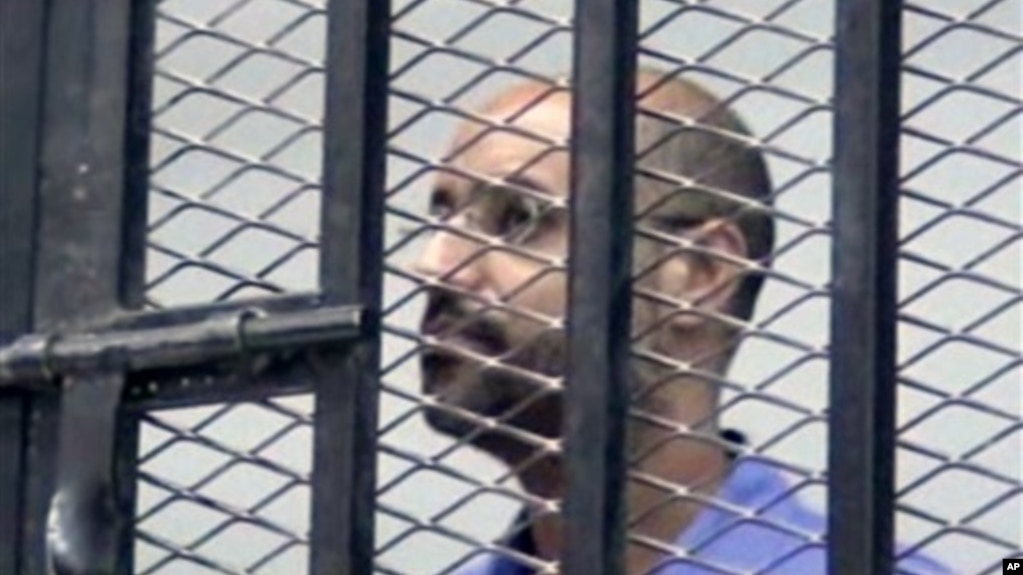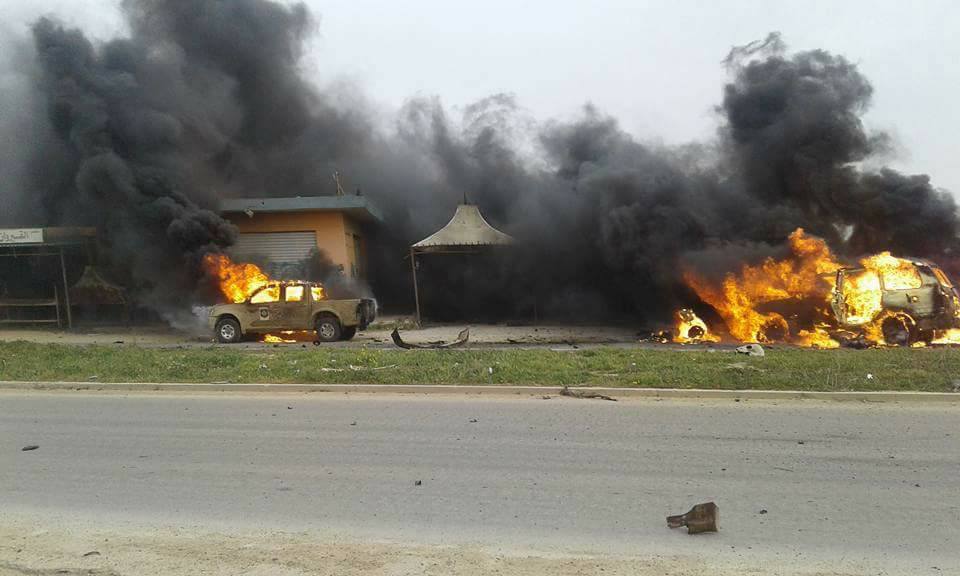The greatest impact of
President Donald Trump’s expected designation of the Muslim Brotherhood as a radical organisation will be felt in Libya, drastically changing the balance of power in the country’s civil war
in favour of eastern strongman Khalifa Haftar.
Haftar feels power on his terms is within his grasp. The real reason behind his
anti GNA stance is due to what he claims are former Libyan Islamic Fighting Group
(LIFG) extremists and Muslim Brotherhood members that dominate it.
Released: Part of a group of 110 jailed Libyan Islamic Fighting Group members walk off after being released from the Abu Salim prison in Tripoli - (Part of the Qaddafi attempt to quell "days of Rage" protests in 2011)
The
Brotherhood is the really the key component of the failing Govenrment of National Accord (GNA), set up in Tripoli with United Nations support, but unable to wrest control of the city from warring militias.
Haftar, allied to a rival eastern government, is the GNA’s key rival, and has made no secret of labelling its Brotherhood members “terrorists.”
The Field Marshall's powerful
Libyan National Army is already battling militias in Benghazi, and successful military campaigns last year have left it controlling two thirds of Libya’s vast oil production and much of the country.
Whereas the Obama administration viewed the Brotherhood as a positive non-violent expression of Islamism, Trump officials view it in the same category as Al Qaeda and IS.
Senior Officials in the new administration say a decision to designate it a terrorist organisation was delayed last week, but may be enacted later this month.
Trump’s chief strategist Steve
Bannon has long made combatting the Brotherhood his cause celebre.
Trump’s Secretary of State Rex Tillerson is of the same mind, using his January confirmation hearing to equate Brotherhood with Al Qaeda:
“The demise of IS would also allow us to increase our attention on other agents of radicalism like Al Qaeda, the Muslim Brotherhood, and certain elements within Iran.”
While Trump mulls a terrorist designation through presidential order, Senator Ted Cruz has reintroduced a congressional bill, shelved two years ago, to enact the same thing.
Brotherhood supporters insist the organisation, which spans many sub groups across the Muslim world, is committed to non-violence.
The Brotherhood traces its roots to formation in Egypt in 1928.
Senior sources inside the Trump administration state there is a concern about offending Qatar and or targeting all Muslim Brotherhood affiliates, such as CAIR & Turkey's Government AKP party and Tunisia’s Muslim Brotherhood allied Enhahda party.
Equally though,
Pentagon officials fear being left behind in Libya, where Russia has already moved to back Haftar. Last month it invited him aboard it aircraft carrier, Admiral Kuznetsov, for a phone call with defence minister Sergei Shoigu about possible military cooperation.
US Defence officials fear Russia may, in the words of one officer, “Do a Syria on us” in Libya:
In Syria, Russian support for Bashar Al Assad has undone years of US diplomacy, handing the dictator the upper hand.
Russian support for Haftar may do the same thing if, as the general insists, he is successful in capturing Tripoli soon.
America’s allies are already scrambling to embrace Haftar. France admitted last July that it has deployed special forces to help him uproot terrorists in Benghazi - the same terrorists Washington accuses of killing US ambssador Chris Stevens in the city in 2012.
And last week Britain’s foreign secretary Boris Johnson said Hafter must be part of any unity administration: “That’s the crucial question: how to make sure that Haftar is in some way integrated into the government of Libya.”
The Brotherhood is itself struggling to win support across the Arab World. Its government was removed in a popular coup by the Egyptian army in 2013 and
Brotherhood candidates were crushed in Libyan elections the following year.
A terrorist designation would fall neatly into
Trump’s ambition to form a working relationship with Vladimir Putin, who has also announced combatting terrorism is top of his agenda.
Making common cause, while also agreeing spheres of influence in both Europe and the Middle East are top of the agenda of a mooted summit meeting between the two men, a meeting that, in the words of one Trump advisor “Just can’t come soon enough" following the left over Obama-ites sabotage of Gen. Flynn.
http://timesofoman.com/article/103145/Opinion/Columnist/Libya's-final-hours

















